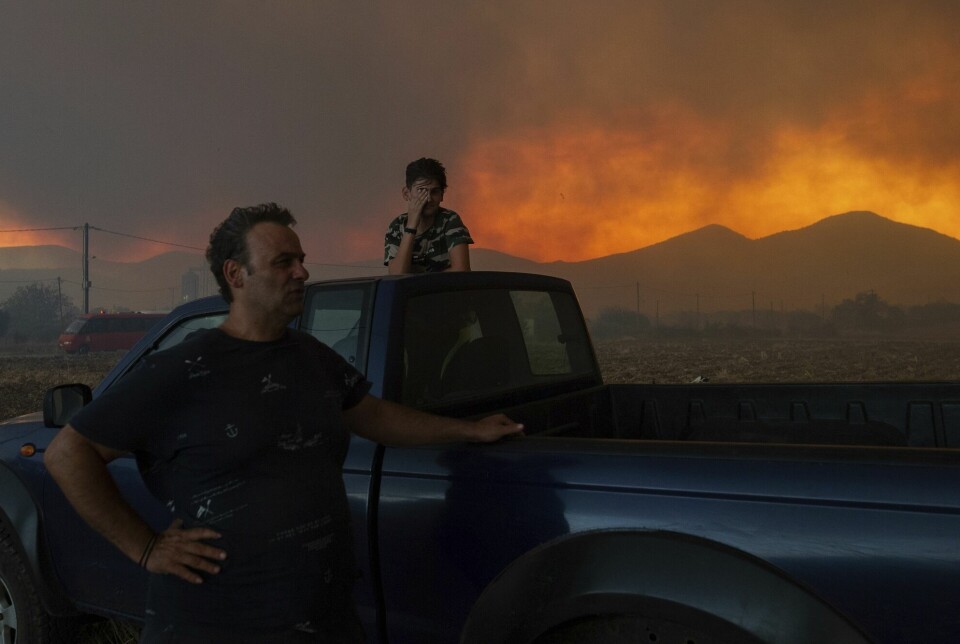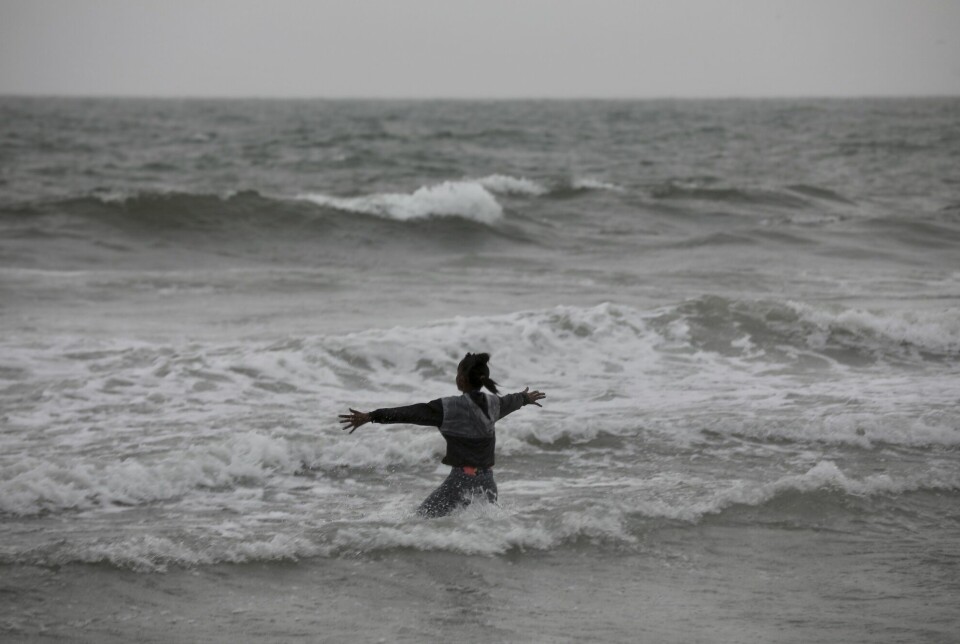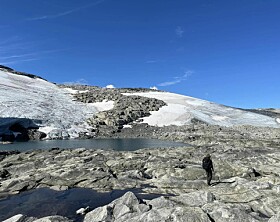
Heading into a climate that humanity has never experienced before
Temperatures are still exceptionally high in the world's oceans after several months with record heat levels globally.
As the summer of 2023 winds down, many people in southern Norway are left with the feeling of having had a rather chilly time.
But you don’t need to shift your gaze very far before the picture flips. Southern Europe has seen constant heat waves, forest fires and new heat records, and Tromsø in northern Norway has had a record number of summer days with temperatures above 20 degrees.
The average temperature set record highs worldwide in June, July and likely August as well, according to Tore Furevik, director of the Nansen Center and professor at the University of Bergen.
“Globally, there’s no doubt that this summer has set the most significant temperature record ever,” he tells the Norwegian News Agency (NTB).
El Niño a contributing factor
Temperatures are constantly reaching new heights, which is largely due to global warming. In addition, Furevik points to the weather phenomenon El Niño, which tends to bring on temporary additional warming.
“We can expect to have new heat records throughout the autumn and winter. 2023 will probably be the warmest year ever recorded, very soon to be beaten in 2024,” says Furevik.
A new El Niño developed earlier this year. This has very likely raised the global temperature, which tends to be even hotter the year after the weather phenomenon occurs.
Furevik says that July was probably the hottest month on Earth in 125 000 years.
“We’re heading into a climate that humanity has never experienced before,” he asserts.
Most viewed
Warnings of high ocean temperatures
As constant heat waves swept across a number of continents, ocean temperatures have perhaps been even more exceptional in recent months.
Both the North Atlantic and the world's oceans as a whole have been significantly warmer than the previously measured warmest temperatures at the same time of the year. Furevik says this is continuing into the beginning of September.
Early this summer, researchers warned of the consequences. Shellfish, plants and algae could be killed by the undersea heat wave in the Atlantic Ocean off the coast of Europe, according to British researcher Richard Unsworth.
Geir Ottersen at the Norwegian Institute of Marine Research tells NTB that he is not aware of this having happened so far. He adds that it may take some time before the consequences become visible for ocean species.

Pretty calm
Ottersen says that he is still pretty calm when it comes to the temperature level for species off the Norwegian coast this summer.
“We didn't get the extremely hot summer here,” he says.
June was extremely hot and dry in southern Norway, and heat records were set both in Oslo and Akershus. There ocean temperatures were also exceptionally high. But then the weather changed and became wetter and less hot.
While Norwegians on holiday in Norway wished for more sun and more inviting bathing weather, the species in the oceans were lucky. The Norwegian coast became cooler at the same time as the extreme temperatures persisted further out in the Atlantic.
“I would have been more worried if things had stayed like they were in June,” Ottersen tells NTB.
Washed out into the ocean
Instead, another challenge has arisen for ocean species along the Norwegian coast: Unusually large amounts of fresh water, soil and sand flowed into the sea during the extreme weather Storm Hans.
All the fresh water has lowered the salt level in the sea below what the species have evolved to tolerate. Greater turbidity can make it harder for fish to find prey.
“In a few months we’ll see if things have gone well or if some of our animal and plant species are in trouble,” says Ottersen.
Along with heat waves and droughts, torrential rain will very likely become more common as the climate changes.
“When we get rain now, it’s often extreme amounts of rain,” says Furevik.
According to Furevik, climate change has increased the likelihood of future Norwegian summers being like the one we've had this year – alternately marked by record heat and rainfall, drought and floods.
Tourists evacuated
A steady stream of extreme weather events have also been occurring elsewhere in the world in recent months. A number of heat waves have affected southern Europe, the United States, China and South America.
Heat and drought increase the risk of forest fires, and the fire raging in north-eastern Greece at the end of August was considered the largest ever observed in the EU.
The fire on the holiday island of Rhodes in July led to the largest evacuation ever of this type in Greece.
In Antarctica, the amount of sea ice has been far lower than ever previously recorded. The situation here and in the world's oceans has alarmed scientists, who are asking whether climate change is about to accelerate.
“I think it’s a bit too early to say whether it’s accelerating,” says Furevik.
At the same time, he is surprised by the extent of the extreme weather events, which seem to be worsening faster than expected.
———
Read the Norwegian version of this article at forskning.no





































